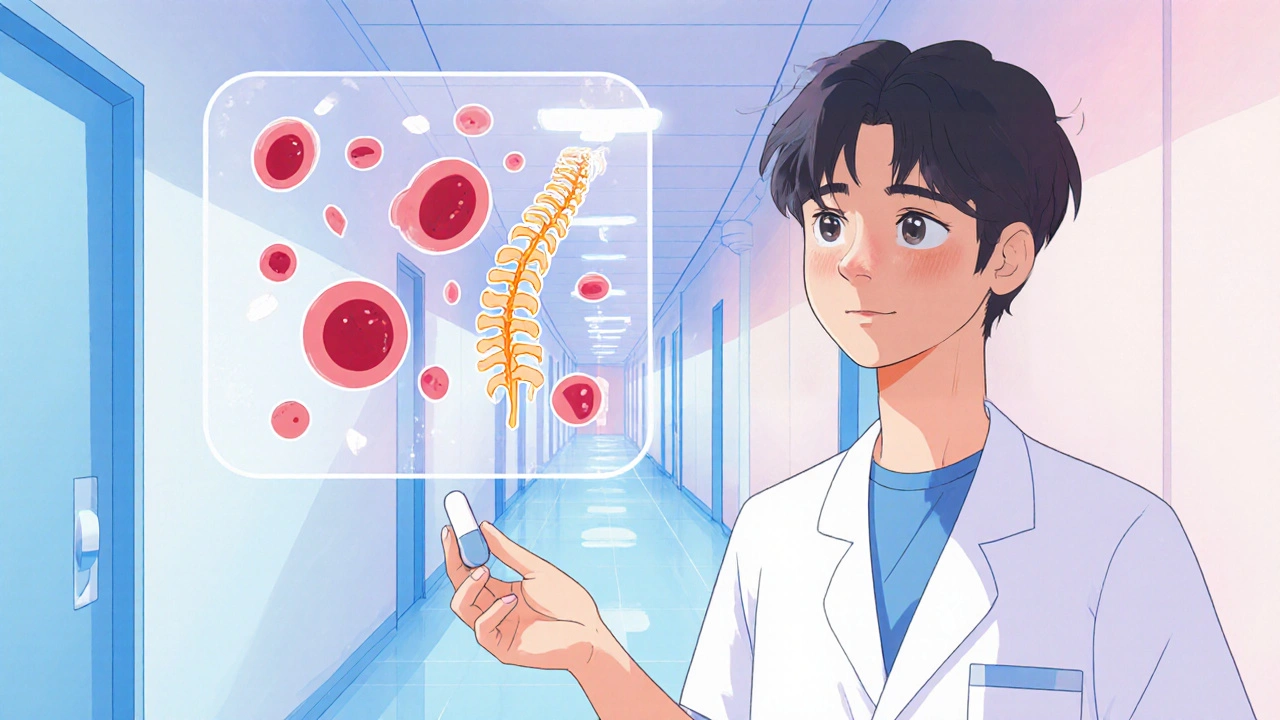Bone Health
When thinking about Bone Health, the condition of your skeleton’s strength and density. Also known as skeletal wellness, it matters whether you’re lifting weights, climbing stairs, or just getting through the day.
One of the biggest drivers of bone health is Calcium, a mineral that builds and maintains bone tissue. Your body can’t store calcium forever, so you need a steady supply from food or supplements. Pair that with Vitamin D, a fat‑soluble vitamin that helps your gut absorb calcium and you’ve got a core nutrient combo that supports bone formation. When calcium and vitamin D work together, the skeleton stays dense and less prone to cracks.
Why Bone Health Matters for Everyone
Even if you’re not an athlete, bone health affects daily life. Low bone density can lead to Osteoporosis, a condition where bones become fragile and break easily. Osteoporosis isn’t just an older‑person issue; genetics, diet, and activity level can set the stage early. Knowing the risk factors helps you act before a fracture happens. A broken wrist, hip, or spine can sideline you for months and cost a lot in medical bills.
Physical activity is the other half of the equation. Exercise, weight‑bearing and resistance activities that stimulate bone remodeling tells your body to lay down more bone where it’s needed. Walking, jogging, dancing, or lifting light weights all trigger tiny stress signals that strengthen the matrix. The more varied the movement, the more uniformly your skeleton benefits.
Let’s break down a few practical steps you can start today. First, add a dairy or fortified non‑dairy source to each meal – that’s about 300‑500 mg of calcium per serving. Second, get sunlight or a vitamin D supplement to hit the 600‑800 IU range most adults need. Third, schedule 30 minutes of weight‑bearing exercise three times a week; even a brisk walk counts. Finally, consider a bone‑density test if you have risk factors like family history, smoking, or long‑term steroid use. The test gives you a snapshot of your bone mineral density and helps you track progress.
Keeping bone health optimal also means watching out for things that can sabotage it. Excessive caffeine, high‑salt diets, and chronic alcohol intake can leach calcium from bones. Certain medications, such as glucocorticoids, raise fracture risk too. If you’re on any of these, talk to your doctor about protective strategies – sometimes a small supplement tweak or a lifestyle adjustment can offset the downside.
All of these pieces – calcium, vitamin D, exercise, and risk‑management – form a network that keeps your skeleton resilient. Below you’ll find a collection of articles covering each angle in depth: from the science behind calcium absorption, to workout plans that target bone strength, to the latest updates on osteoporosis treatments. Dive in and arm yourself with the knowledge you need to protect your bones for the long haul.
Hydroxyurea, Bone Health & Osteoporosis: Prevention & Management Guide
Learn how hydroxyurea can affect bone health, recognize osteoporosis risks, and follow practical steps-diet, exercise, screening, and meds-to keep your bones strong while on therapy.
